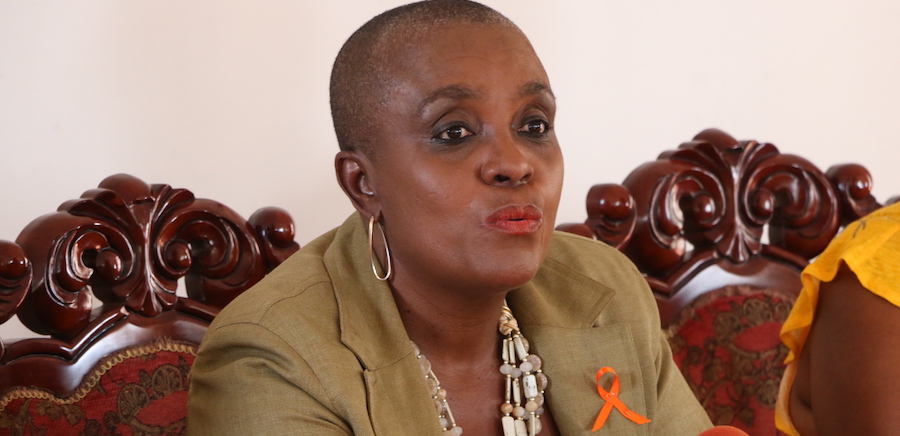All newborn babies should undergo mandatory screening for Sickle Cell Disease, the incurable disease’s long-time advocate, Shelley Weir, has suggested.
Weir, the president of lupus, sickle cell and arthritis charity, the Hope Foundation said it was only through newborn screening that Barbados would ascertain the numbers afflicted by the inherited blood disorder that affects mostly African-descended people, and also help to ensure they have access to treatment as early as possible.
Weir told journalists that screening would also dramatically reduce the number of deaths from life-threatening complications associated with the disease, including stroke and kidney disease. She was speaking at a press conference to mark World Sickle Cell Day, at the Barbados Defence Force headquarters at St Ann’s Fort, at Garrison.
“As the organization in Barbados advocate on behalf of the rights of sicklers, Hope Foundation continues to put the case for the mandatory screening of newborns.
“Early diagnosis is key to ensuring healthy and successful lives for sicklers, given the fact that babies with sickle cell usually appear normal at birth and only show signs of the condition after several months. But with screening, babies with the disorder would be detected before complications occur.”
She said it was also the foundation’s desire that anyone interested in starting a family have a genetic test done to know whether or not they carry the sickle cell trait and if there was the possibility their child could develop full-blown disease.
The efforts of the Hope Foundation have so far resulted in “significant” change treatment policies in the Accident and Emergency Department of the Queen Elizabeth Hospital in which sickle cell sufferers in crisis are seen with the same priority as asthmatic attacks, she added.
Weir said: “For many years [sicklers] were sidelined, often being told that they were neither accident nor emergency. But the fact is that a main feature of the blood disorder is pain. Hope Foundation therefore places a great deal of emphasis on pain management.
“These painful episodes, also called crises can be acute or chronic, but acute pain is far more common. Acute pain is sudden and can range from mild to very severe, and can last from hours to a few days. Chronic pain often lasts for weeks to months and can be quite hard to bear. It can also severely limit a sickler’s daily activities.”
Hope Foundation member Dr Subira Hinds told journalists that early diagnoses allowed patients to get the medical care that was necessary to afford someone a better chance at life, such as proper vaccination, antibiotic, prophylactic protection and hydroxyurea treatment.
Dr Hinds said: “We should not be diagnosing children past the age of infancy. Children and parents should not have to go through several painful episodes and not know what is happening to them. With newborn screening this can be avoided.”
In addition to advocating on behalf of sicklers, Hope Foundation has continued to raise Barbadians’ awareness about sickle cell anemia. Over the years the organisation has hosted a number of outreach events to facilitate the distribution of orange ribbons and informative literature on the disease.
Weir said Hope Foundation was pleased with the response to its outreach even more since the island has not recorded any deaths of children under the age of five from complications associated with sickle cell since the 1990s. She said if this was to remain Barbados’ reality, the whole society needs to become knowledgeable about the disease.
Sickle cell anaemia is an inherited form of anaemia — a condition in which there are insufficient healthy red blood cells to carry adequate oxygen throughout the body.
The disease results in an abnormality in the haemoglobin, the protein which carries oxygen in red blood cells. The cells tend to take on a rigid, sickle-like shape. Problems in sickle cell disease typically begin in infants five to six months old.
Sicklers tend to develop a variety of health problems, the most notable of which are painful attacks, known as sickle cell crises. They also suffer anaemia, and is prone to swelling in the hands and feet, bacterial infections and stroke. Life expectancy among sickle cell sufferers is between 40 and 60 years of age.
World Sickle Cell Day is commemorated every year on June 19.
anestahenry@barbadostoday.bb




